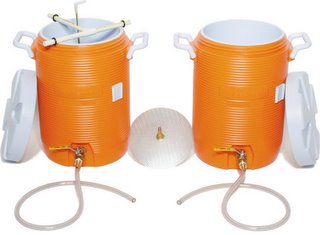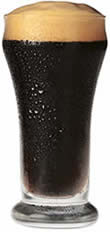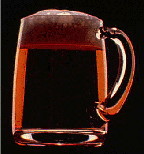Needs Work
It has been about a week since I tapped my English Brown Ale and I must have done something wrong because there is no way that it is supposed to taste like this. First off it's watered down so all you get is a faint taste of beer. Second, it lacks many of the characteristics that a good ale should have, there is almost no hop flavor and a total lack of bitterness.
As far as the things that I did wrong to make this batch the way that it is, well I am not sure where to begin. First off I don't think that I cooked it long enough which would contribute to the watered down taste. The recipe called for brown sugar and since I forgot to add it in the cooking, I added it before the second fermentation. There were two reasons for this, first, I did not get much bubbling from the primary fermentation and I thought some sugars might help fire up the yeast and second, I read somewhere that you can do that if you boil the additive before adding to the brew.
Finally I have been having continuing problems with the CO2 system that I am using. It has already caused me to over carbonate some brews and under carbonate other, but nonetheless the same thing remains, they all wind up flat.
Needless to say, there are some aspects of my system that need to be improved, but like they say "That is why they play the game"








